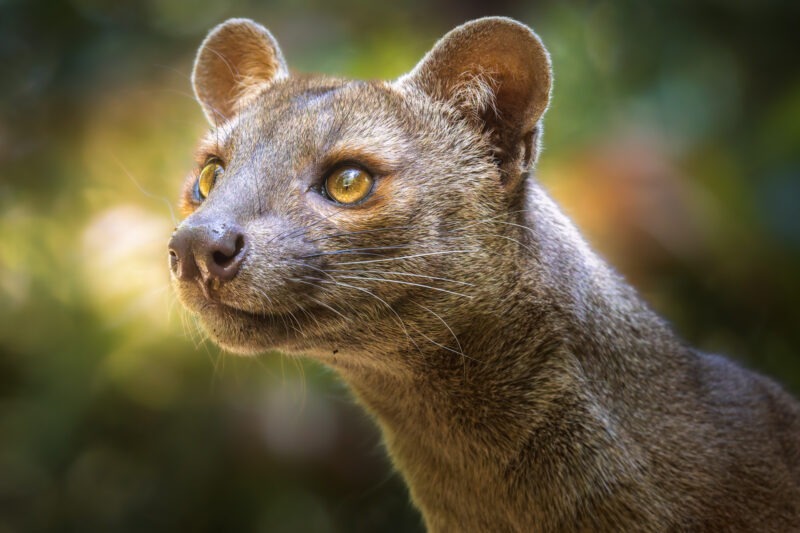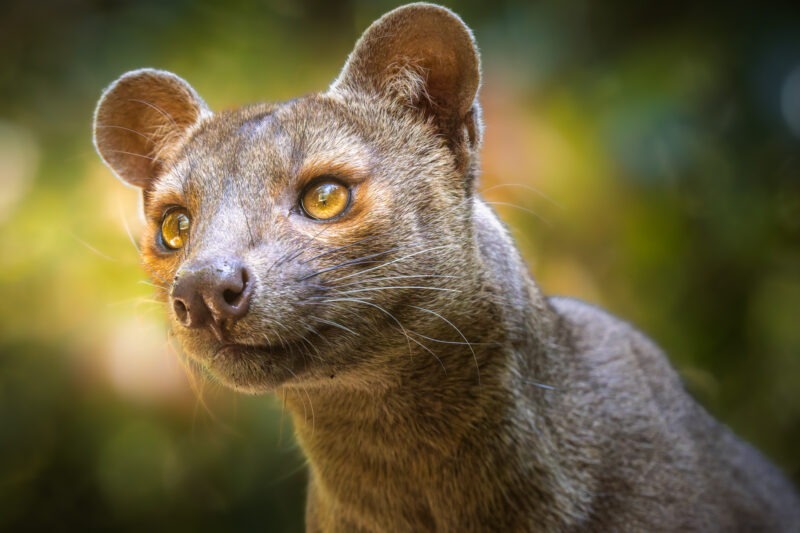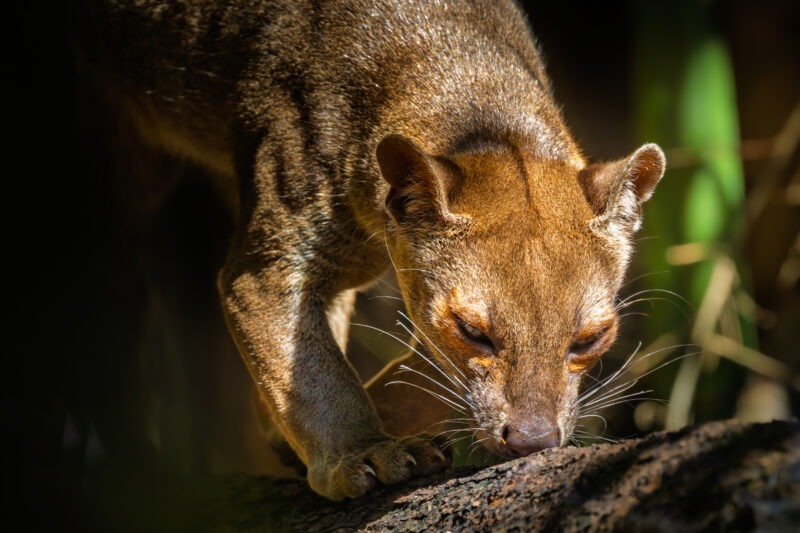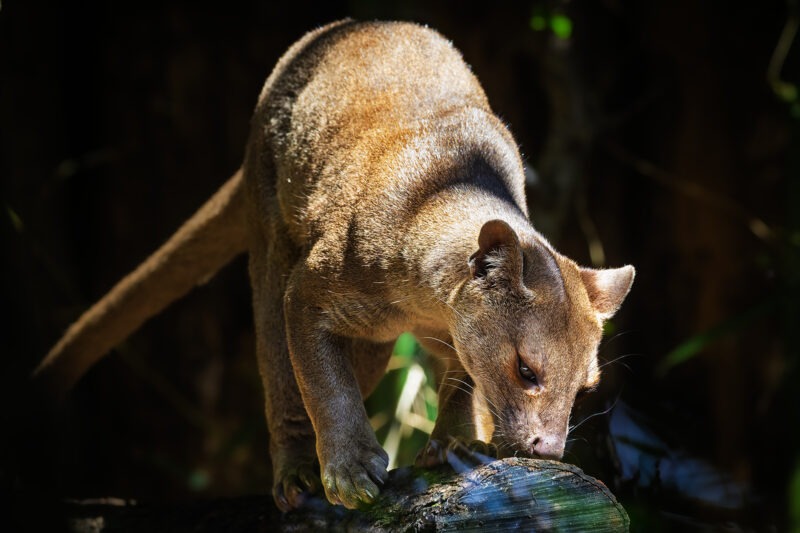The Fossa: A Fascinating Predator of Madagascar
The fossa (Cryptoprocta ferox) is an enigmatic and fascinating predator, a true king of Madagascar’s forests. With its elongated body, similar to that of a puma, and its feline agility, this animal embodies the perfect combination of strength and grace.
A Specialized Predator
The fossa is Madagascar’s largest terrestrial carnivore, an apex predator that plays a crucial role in the ecosystem’s balance. Its diet consists primarily of lemurs, Madagascar’s iconic primates, but also includes other small mammals, birds, reptiles, and even insects. Its hunting technique is as varied as it is effective: it can chase prey on the ground, climb trees agilely, or pounce on them from above.
Unique Adaptations
The fossa possesses a series of adaptations that make it a formidable predator. Its retractable claws allow it to climb trees with ease and grasp prey firmly. Its long tail provides balance during leaps and runs, while its powerful muscles enable it to make impressive jumps. Its jaw is equipped with sharp, powerful teeth capable of crushing bones and tissues.
Habitat and Distribution
The fossa is endemic to Madagascar, meaning it is found only on this island. Its ideal habitat consists of rainforests, dry deciduous forests, and savannas. However, habitat destruction due to deforestation and agricultural expansion is drastically reducing its range.
Behavior and Sociality
The fossa is a solitary animal, except during the mating season. Males and females only meet to mate, after which females care for the cubs alone. Cubs stay with their mother for about two years, learning the hunting techniques and survival skills necessary for life in the forest.
Threats and Conservation
The fossa is classified as a vulnerable species by the IUCN (International Union for Conservation of Nature). The main threats to its survival are habitat destruction, hunting, and persecution by farmers, who consider it a threat to livestock. Fossa conservation is crucial for safeguarding Madagascar’s unique biodiversity. Concerted efforts are needed to protect its habitat, reduce hunting, and promote peaceful coexistence between humans and wildlife.
A Symbol of Madagascar
The fossa is a symbol of Madagascar, an iconic animal that represents the island’s rich and diverse wildlife. Its survival depends on our ability to protect Madagascar’s forests and ensure a secure future for this extraordinary predator.
Fun Facts
- The fossa is a solitary animal, except during the mating season.
- Females are slightly larger than males.
- The fossa has retractable claws, which allow it to climb trees with ease.




